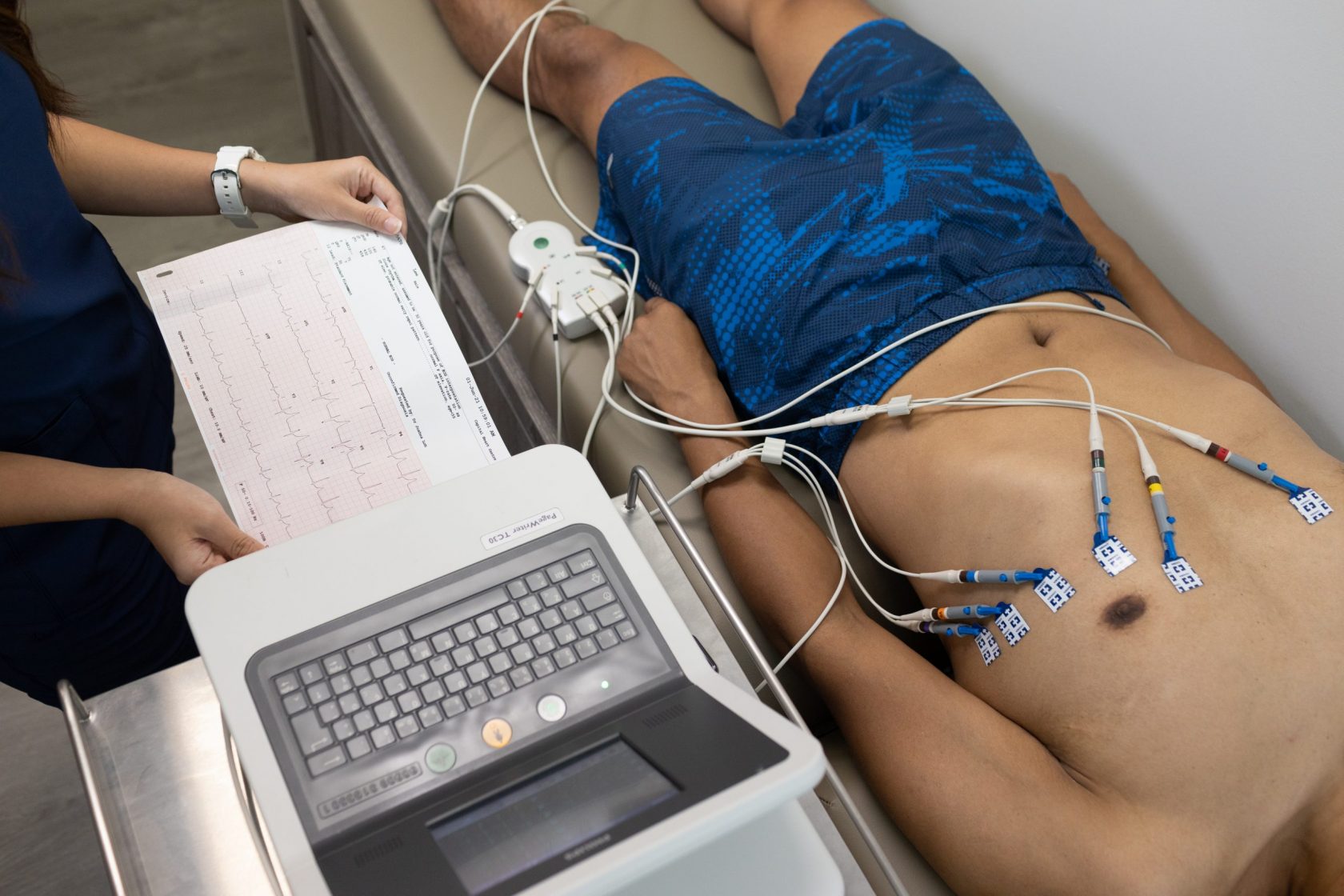
Electrocardiography
An electrocardiogram (EKG) test is a simple, painless, and quick test that records your heart’s electrical activity. Each time your heart beats, an electrical signal travels through your heart. The signal triggers your heart’s four chambers to contract (squeeze) in the proper rhythm so that your heart can pump blood to your body.
An EKG recording of these signals looks like wavy lines. Your provider can read these lines to look for abnormal heart activity that may be a sign of heart disease or damage.
ECG is performed to help doctors for various reasons.
- To find the root cause of chest pain
- To evaluate the problems such as tiredness, shortness of breath, dizziness etc.
- To diagnose a heart attack. To identify a missing or irregular heartbeat. To check the rhythm of the heart.
- To check the flow of blood to your heart muscle and to identify whether it is low.
- To identify the abnormalities such as high potassium, low calcium or high calcium.
- To determine heart health.
- To determine whether the medicines are working or not.
- To diagnose heart problems.
- To monitor the heart’s condition.
- The technician will ask you to remove clothes from the waist up and lie straight in a relaxed position on the bed.
- He will attach electrodes to your arms, chest and legs.
- Once the lead wires are attached to electrodes, ECG will be started and the computer will generate a picture of the electrical impulses that move through your heart on graph paper.
For an ECG (Electrocardiogram) test, no special preparation is required. Some common instructions that need to be followed are.
- Remove all kinds of metallic objects.
- Bring your medical history with you.
- Shave your chest hair to facilitate an improved connection.
- Do not apply oil, skin creams or body lotion on the day of the test as it prevents the electrodes from making contact with the skin.
- Before the test, inform the technologist/radiologist/doctor if you are taking medicines.
- Before the test, inform the technologist/radiologist/doctor if you have a pacemaker.
No special care is required after ECG test.
